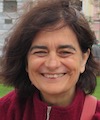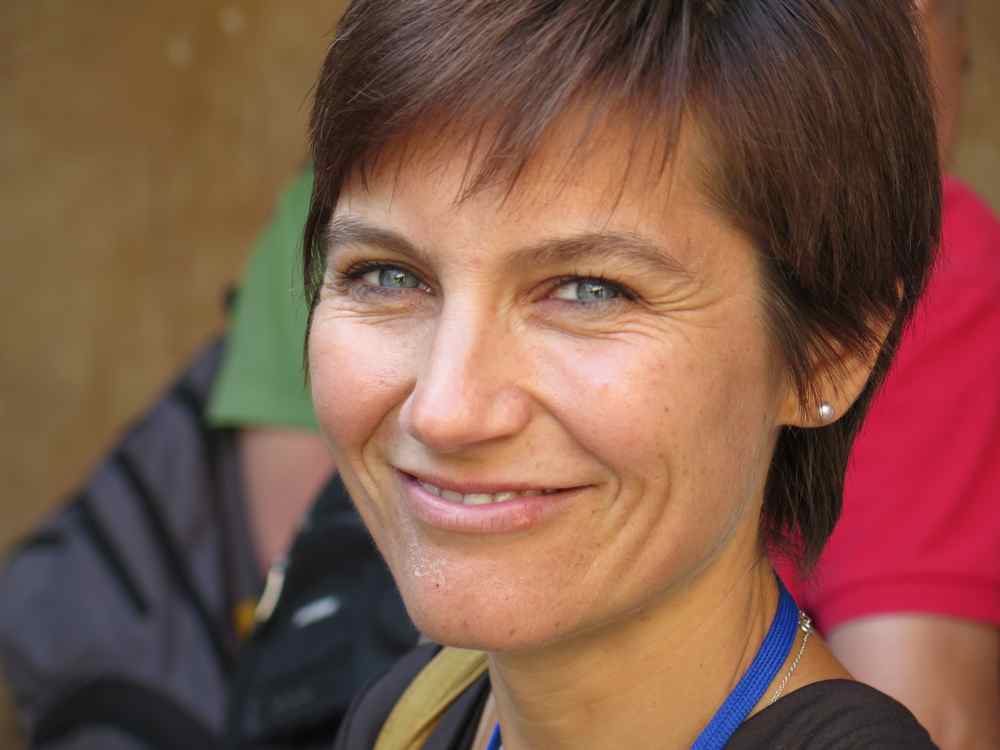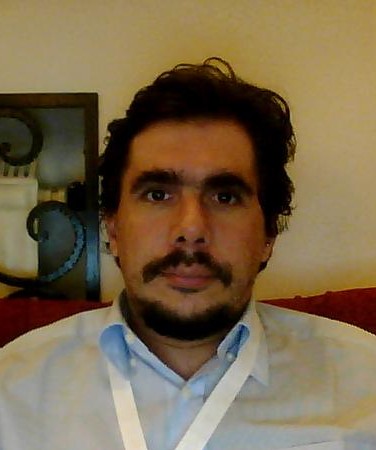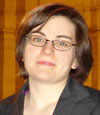Studying at the University of Verona
Here you can find information on the organisational aspects of the Programme, lecture timetables, learning activities and useful contact details for your time at the University, from enrolment to graduation.
Academic calendar
The academic calendar shows the deadlines and scheduled events that are relevant to students, teaching and technical-administrative staff of the University. Public holidays and University closures are also indicated. The academic year normally begins on 1 October each year and ends on 30 September of the following year.
Course calendar
The Academic Calendar sets out the degree programme lecture and exam timetables, as well as the relevant university closure dates..
| Period | From | To |
|---|---|---|
| I semestre | Oct 1, 2018 | Jan 31, 2019 |
| II semestre | Mar 4, 2019 | Jun 14, 2019 |
| Session | From | To |
|---|---|---|
| Sessione invernale d'esame | Feb 1, 2019 | Feb 28, 2019 |
| Sessione estiva d'esame | Jun 17, 2019 | Jul 31, 2019 |
| Sessione autunnale d'esame | Sep 2, 2019 | Sep 30, 2019 |
| Session | From | To |
|---|---|---|
| Sessione di laurea estiva | Jul 22, 2019 | Jul 22, 2019 |
| Sessione di laurea autunnale | Oct 15, 2019 | Oct 15, 2019 |
| Sessione di laurea invernale | Mar 19, 2020 | Mar 19, 2020 |
| Period | From | To |
|---|---|---|
| Sospensione attività didattica | Nov 2, 2018 | Nov 3, 2018 |
| Vacanze di Natale | Dec 24, 2018 | Jan 6, 2019 |
| Vacanze di Pasqua | Apr 19, 2019 | Apr 28, 2019 |
| Vacanze estive | Aug 5, 2019 | Aug 18, 2019 |
Exam calendar
Exam dates and rounds are managed by the relevant Science and Engineering Teaching and Student Services Unit.
To view all the exam sessions available, please use the Exam dashboard on ESSE3.
If you forgot your login details or have problems logging in, please contact the relevant IT HelpDesk, or check the login details recovery web page.
Academic staff
 andrea.albiero@univr.it
andrea.albiero@univr.it
 maurizio.boscaini@univr.it
maurizio.boscaini@univr.it
 federico.busato@univr.it
federico.busato@univr.it
 rosanna.laking@univr.it
rosanna.laking@univr.it

Wessel Daniel
Study Plan
The Study Plan includes all modules, teaching and learning activities that each student will need to undertake during their time at the University.
Please select your Study Plan based on your enrollment year.
1° Year
| Modules | Credits | TAF | SSD |
|---|
| Modules | Credits | TAF | SSD |
|---|
| Modules | Credits | TAF | SSD |
|---|
3 modules to be chosen among the followingTo be chosen betweenLegend | Type of training activity (TTA)
TAF (Type of Educational Activity) All courses and activities are classified into different types of educational activities, indicated by a letter.
Mathematics for Decisions (seminar course) (2018/2019)
Teaching code
4S001445
Teacher
Coordinator
Credits
6
Language
English
Scientific Disciplinary Sector (SSD)
MAT/09 - OPERATIONS RESEARCH
Period
I semestre dal Oct 1, 2018 al Jan 31, 2019.
Learning outcomes
Mathematics for decisions is a seminar course comprising:
+ interventions by external professors (seminars, mini-courses);
+ interventions by professionals (statements of problems from the applications, description of needs and/or projects);
+ interventions by the referent of the course, collaborators of him,
or colleagues by the department (both classes and proposal of problems and projects from the applications).
+ presentations delivered by the students on arguments of their interests and as agreed upon (seminars).
The aim of this offert is to provide the studens with opportunities to meet and/or get involved into working or research projects, activating and developing their own interests, motivations and talents.
Among the targets of this offert:
+ provide the students with opportunities to get in touch with working and/or research environments, developing motivations, interests, attitudes;
+ allow connections with professionalities and disciplines, not necessarily within mathematics but that can motivate the work of a matematician or help appreciating its possible applicability;
+ stimulate and develope the competence in designing mathematical models for the managing of production facilities, networks, and services;
+ provide the students with occasions to experiment their computational and informatics skills and to become more aware of their impact and role.
With this the aim is to lead our students to:
+ have the competence and attitude to cover technical and professional roles with an high-level modellistic-math profile;
+ have the necessary starting background and the attitude to document themselves by accessing math texts, research articles, project deliverables, technical documentation.
Program
"Mathematics for decisions" is a container of didactic offerts, minicourses, seminars, and proposals of projects, problems and collaborations.
The preferential topics for our proposals will draw from the multidisciplinary tradition and practice of operations research: mathematical programming, logistics, optimization of production, combinatorial optimization, optimization on networks and graphs, game theory, linear programming (PL), integer linear programming (PLI).
During this academic year (2017/18) a core of classes and activities on PLI theory and practice will be proposed. These activities will start already in november.
Further proposals and activities will get determined only during the year, dynamically intercepting and accomodating occasions for collaborations and projects, incoming challenges, availabilities of tutors, researchers and professionists. We will do our best to keep an updated snapshot board of the proposals on the e-learning pages of the course.
| Author | Title | Publishing house | Year | ISBN | Notes |
|---|---|---|---|---|---|
| Christos H. Papadimitriou, Kenneth Steiglitz | Combinatorial optimization : algorithms and complexity | Dover Publications, Inc. | 1998 | 0-486-40258-4 | |
| Robert Fourer, David M. Gay, and Brian W. Kernighan | THE AMPL BOOK. AMPL: A Modeling Language for Mathematical Programming | 0-534-38809-4 | Viene consentito scaricarsi gratuitamente i capitoli che interessano al sito del libro: https://ampl.com/resources/the-ampl-book/ |
Examination Methods
"Mathematics for decisions" is a container worth 6 credits and articulated in mini-courses, seminars, proposals of projects and collaborations. Each mini-course has its own rules, and, beyond attendance and participation, requires taking a final assessment and/or contemplates the possibility of conducting a project or delivering of a seminar.
In the final assignments the students are required to have the competence to produce coherent arguments, possibly even formal ones, and to solve small problems in the different fields or contexts proposed.
In the projects, the students are asked to produce mathematical models for problems expressed in languages from other disciplines or realities, scientific, managerial, economic.
Usually the project comprises a development phase (and possibly even an experimental one) where the student must exhibit his technical and informatics skills in implementing the models and the algorithms developed or adopted.
The seminars require only attendance, but most of the time have been designed with the purpouse of offering problems, challanges, and proposals for collaboration.
An internal system of credits (0.3 credits each attended seminar and class houer) is used in order to collect the various activities into one single pondered mark, but, considered the purpouse of the course, the student should pick up at least one commitment within a project and/or delivering a presentation of a topic. In fact, working out your own study and presentation, or taking an active part in some project, will easily come to saturating the credits besides meeting the highest aims of the "Mathematics for decisions" proposal and (we hope) opportunity.
Type D and Type F activities
Modules not yet included
Career prospects
Module/Programme news
News for students
There you will find information, resources and services useful during your time at the University (Student’s exam record, your study plan on ESSE3, Distance Learning courses, university email account, office forms, administrative procedures, etc.). You can log into MyUnivr with your GIA login details: only in this way will you be able to receive notification of all the notices from your teachers and your secretariat via email and also via the Univr app.
Alternative learning activities
In order to make the study path more flexible, it is possible to request the substitution of some modules with others of the same course of study in Mathematics at the University of Verona (if the educational objectives of the modules to be substituted have already been achieved in the previous career), or with others of the course of study in Mathematics at the University of Trento.Documents
| Title | Info File |
|---|---|
|
|
pdf, it, 167 KB, 27/08/21 |
|
|
pdf, it, 97 KB, 29/07/24 |
|
|
pdf, it, 113 KB, 30/08/21 |
Attendance modes and venues
As stated in the Teaching Regulations , except for specific practical or lab activities, attendance is not mandatory. Regarding these activities, please see the web page of each module for information on the number of hours that must be attended on-site.
Part-time enrolment is permitted. Find out more on the Part-time enrolment possibilities page.
The course's teaching activities take place in the Science and Engineering area, which consists of the buildings of Ca‘ Vignal 1, Ca’ Vignal 2, Ca' Vignal 3 and Piramide, located in the Borgo Roma campus.
Lectures are held in the classrooms of Ca‘ Vignal 1, Ca’ Vignal 2 and Ca' Vignal 3, while practical exercises take place in the teaching laboratories dedicated to the various activities.
Career management
Student login and resources
Graduation
Deadlines and administrative fulfilments
For deadlines, administrative fulfilments and notices on graduation sessions, please refer to the Graduation Sessions - Science and Engineering service.
Need to activate a thesis internship
For thesis-related internships, it is not always necessary to activate an internship through the Internship Office. For further information, please consult the dedicated document, which can be found in the 'Documents' section of the Internships and work orientation - Science e Engineering service.
Final examination regulations
Upon completion of the Master’s degree dissertation students are awarded 32 CFU. The final examination consists of a written dissertation on a specific topic agreed with a supervising professor and presented to a commission (Dissertation Committee).
The dissertation can be high-level theoretical or experimental (in the latter case, it may focus on either basic or applied research), it can deal with a theoretical topic or propose the resolution of a specific problem, or description of a work project, and may be carried out at universities, research institutions, schools, laboratories and companies in the framework of internships, traineeships, study stays in Italy and abroad. The dissertation must be original and written by the student under the guidance of a Supervisor. At the request of the student, the dissertation may be written and presented in Italian.
Professors belonging to the Mathematics Teaching Committee, the Department of Computer Science, and any associated departments may be appointed as Supervisors, as well as any professors from the University of Verona whose area of interest (SSD - Scientific-disciplinary Sector) is included in the teaching regulations of the degree programme.
Students may take the final exam only if meeting all requirements set by the School of Sciences and Engineering.
The Master's degree in Mathematics is obtained by successfully passing the final examination and thus earning the 120 CFU included in the study plan.
The material submitted by the student for the final examination will be examined by the Dissertation Committee, which comprises three professors, possibly including the Supervisor, and appointed by the President of the Teaching Committee. The final examination will be assessed based on the following criteria: the student’s performance during the entire study programme, the knowledge acquired during the dissertation work, their understanding of the topic and autonomy of judgment, their ability to apply such knowledge, and communicate effectively and fully all the outcomes of the work and the main results obtained.
The final examination and the degree ceremony will be carried out, in one of the four graduation sessions throughout the academic year, by the Final Examination Committee appointed by the President of the Teaching Committee, and made up of a president and at least four members chosen from among the professors of the University.
For further information, please refer to the Final examination regulations.
Documents
| Title | Info File |
|---|---|
|
|
pdf, it, 31 KB, 02/11/22 |
|
|
pdf, en, 31 KB, 02/11/22 |
|
|
pdf, it, 171 KB, 20/03/24 |
List of thesis proposals
| theses proposals | Research area |
|---|---|
| Controllo di sistemi multiagente | Calculus of variations and optimal control; optimization - Hamilton-Jacobi theories, including dynamic programming |
| Controllo di sistemi multiagente | Calculus of variations and optimal control; optimization - Manifolds |
| Controllo di sistemi multiagente | Calculus of variations and optimal control; optimization - Optimality conditions |
| Formule di rappresentazione per gradienti generalizzati | Mathematics - Analysis |
| Formule di rappresentazione per gradienti generalizzati | Mathematics - Mathematics |
| Mathematics Bachelor and Master thesis titles | Various topics |
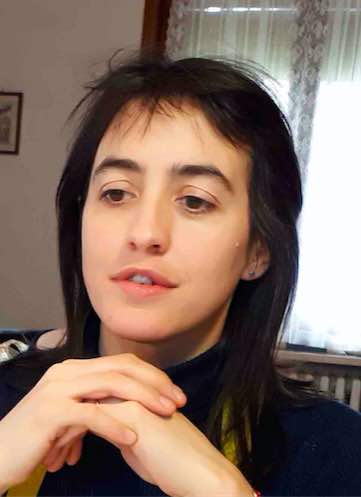
 +39 045 802 7979
+39 045 802 7979


